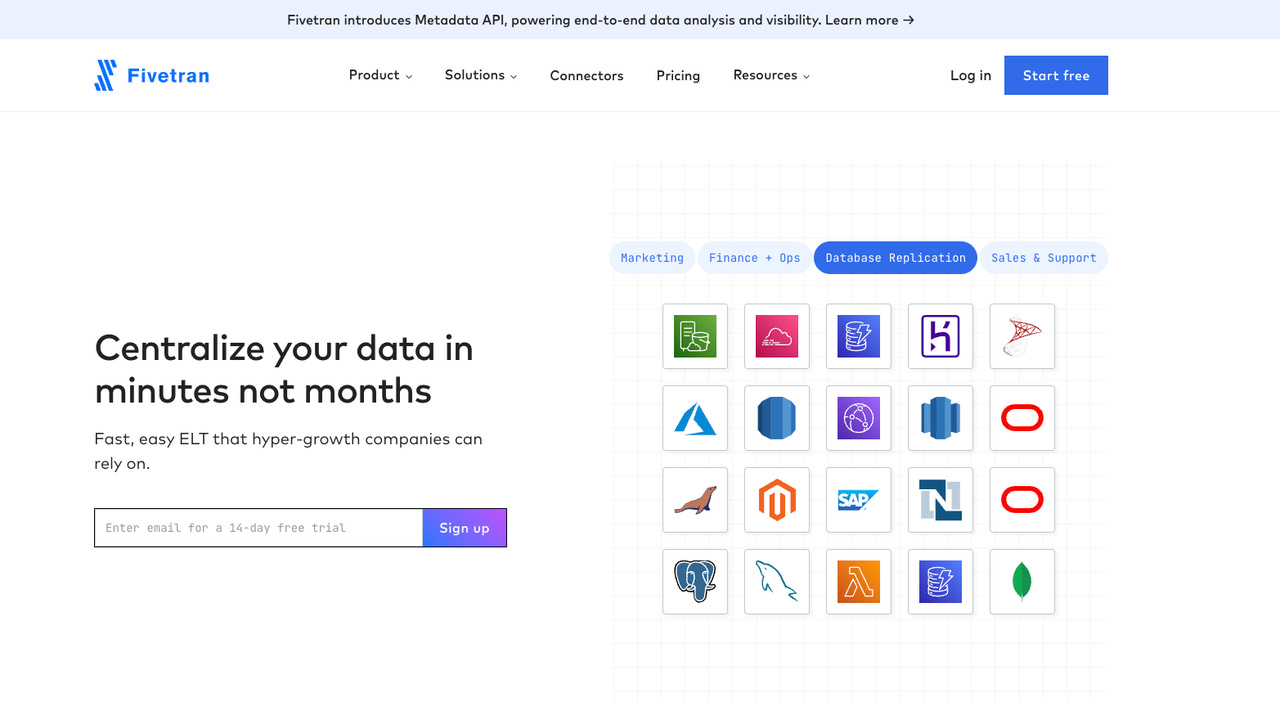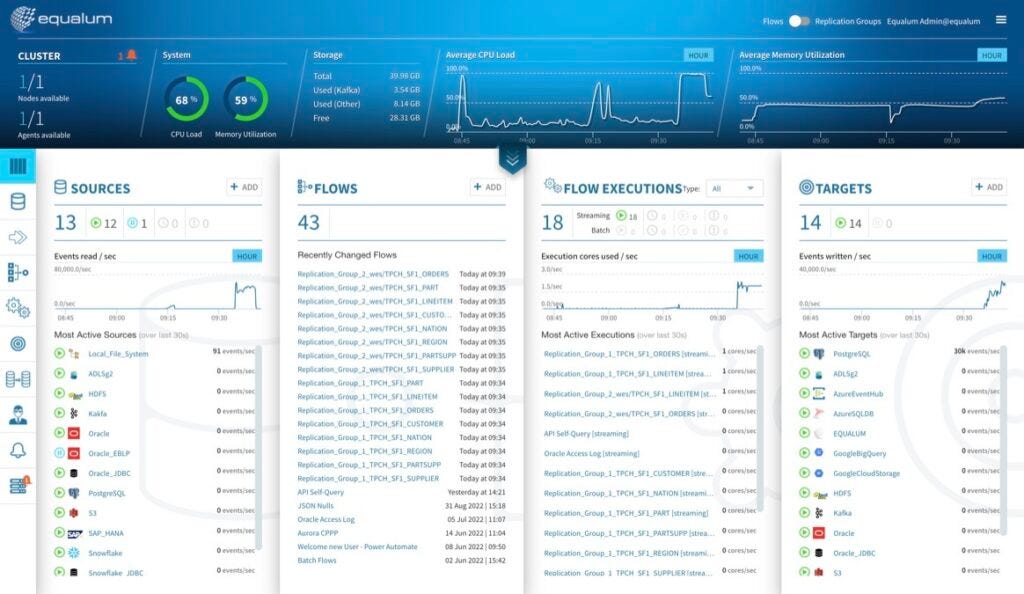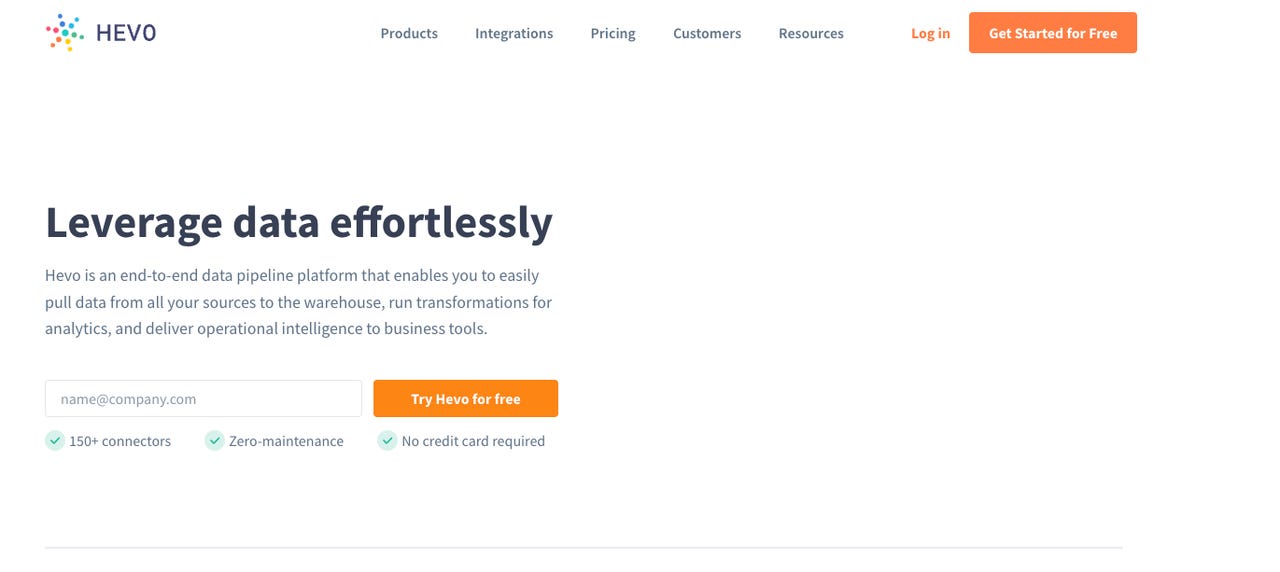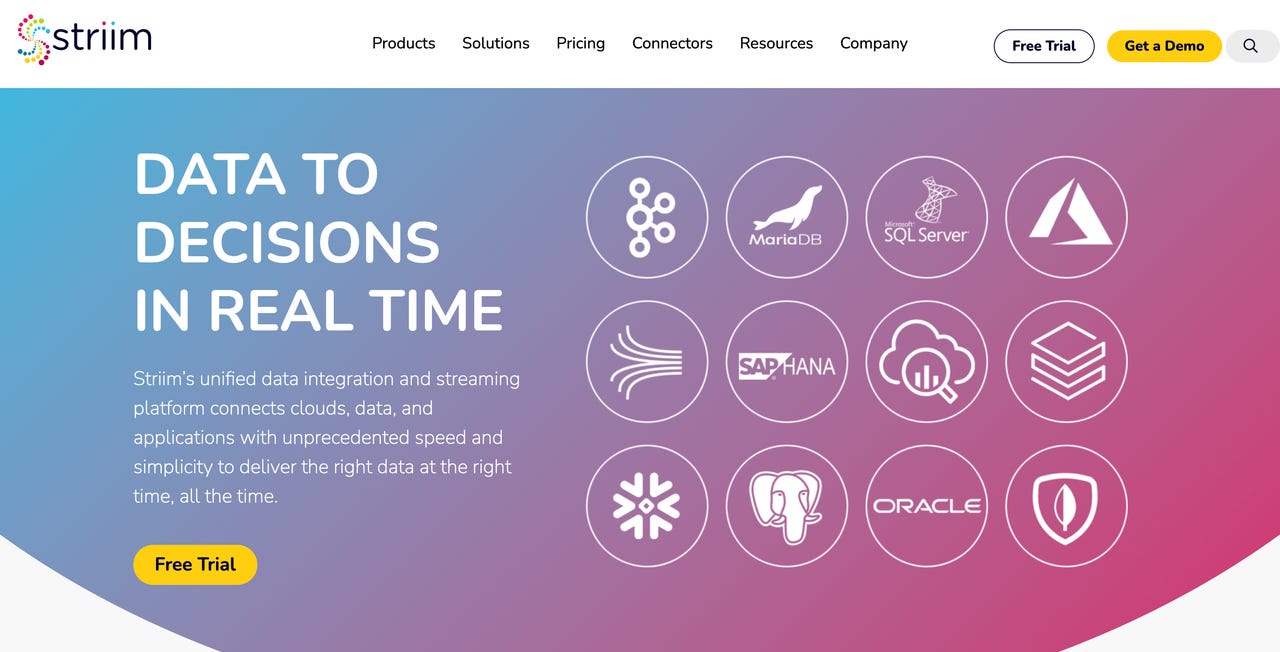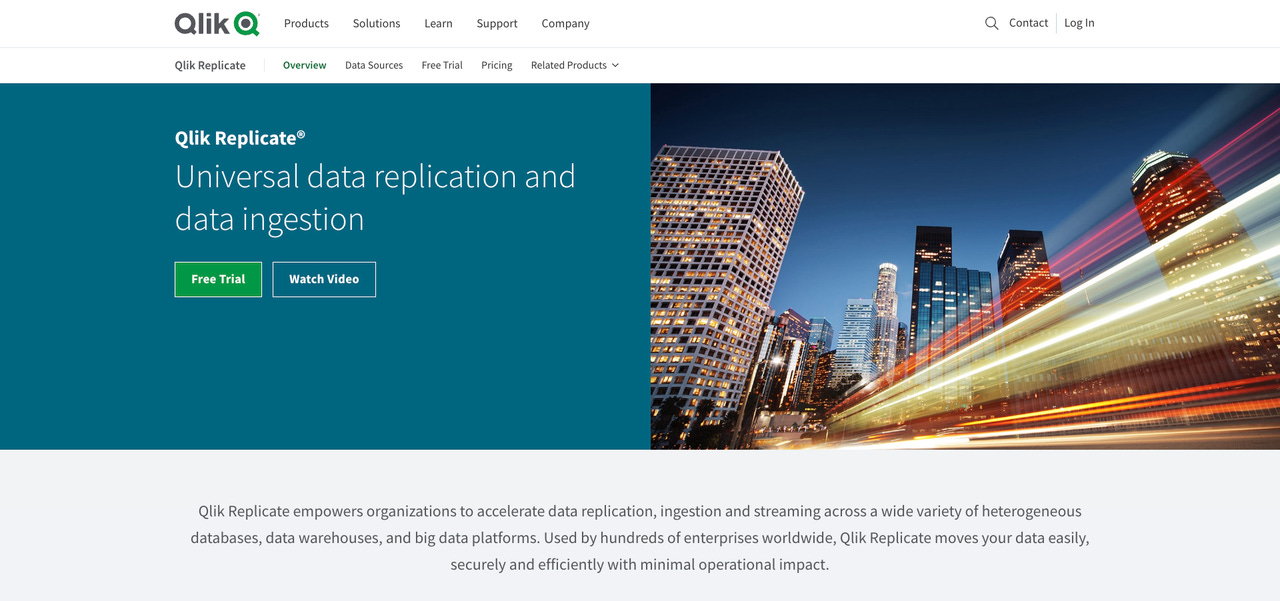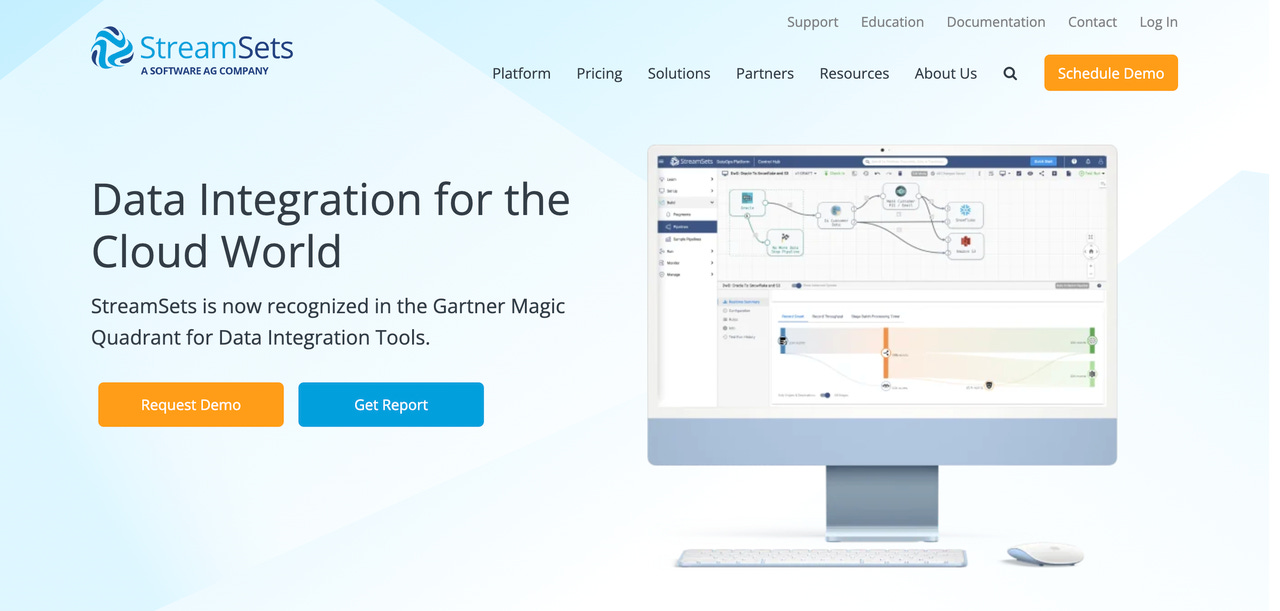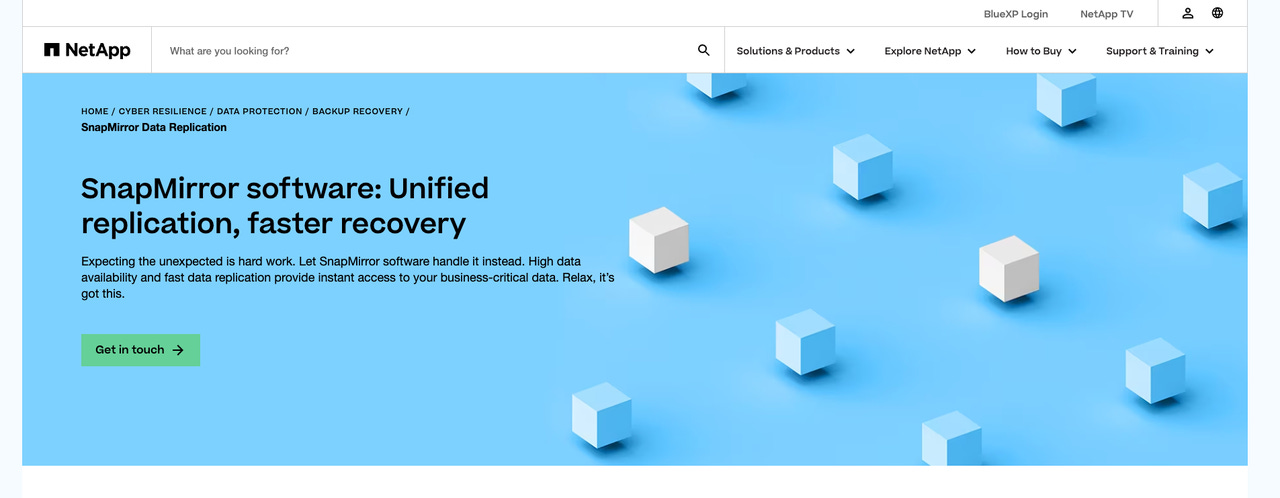Top 7 Data Replication Tools
1. Fivetran
Fivetran provides data integration and replication services. It enables organizations to connect their various data sources, such as databases and cloud-based applications, and replicate their data into a central repository for analysis and reporting.
Pros:
Very easy to set up and use
Out-of-the-box connectors to the most frequently used data sources
Cons:
High cost, especially when syncing large amounts of data
When business activities must start at specific times throughout the day, sync times might become problematic
Only offers single-direction data sync (from the source to your target destination)
2. Equalum
Equalum is an end-to-end data integration and replication platform that provides streaming change data capture (CDC) and modern data transformation capabilities. Equalum has an intuitive UI that radically simplifies the development and deployment of enterprise data pipelines with zero coding required.
Businesses that use Equalum consider it a superior data tool as it automates time-consuming, labor-intensive tasks like data replication at scale. Aside from automation, Equalum’s CDC capabilities allow access to real-time data insights for replication scenarios, analytics, and BI tools for real-time decision-making.
Unlike legacy CDC solutions that are priced for isolated replication scenarios, Equalum’s out-of-the-box CDC tools capture changes from any database or non-database source, transform and enrich the data in flight, and stream changes to a data warehouse or data lake.
Pros:
No-code UI reduces time to deployment and the need for engineering resources
Saves time in development by providing CDC and ETL capabilities in one centralized platform
Standardizes data across all data warehouses into a single format so it’s easier to digest and use
Improves data accuracy by automatically identifying mismatched data
3. Hevo Data
Hevo Data is a no-code end-to-end data pipeline. It supports 100+ pre-built integrations, making it a good tool for replicating data from multiple sources. Hevo is fault-tolerant, which means it can detect anomalies in the incoming data and instantly inform you.
Pros:
Sends notifications for failed data pipelines
Supports two-factor authentication and end-to-end encryption
Cons:
Poor documentation on how to use it
Lack of customization options for notifications
Some pre-built integrations are still in development
Frequency and periods of ingestion and loading cannot be precisely controlled
4. Striim
Striim is a data replication tool that makes it easy to set up data pipelines to stream real-time data to hundreds of the most popular targets.
Pros:
Easy to setup and use
CDC capabilities for real-time data transfer
Cons:
Little documentation available on how to use it
Dashboard UI can be hard to navigate
5. Qlik Replicate
With the help of Qlik Replicate, businesses can speed up data replication, ingestion, and streaming across a range of heterogeneous databases, data warehouses, and big data platforms.
Pros:
Fast data replication speed
Scales easily
Cons:
Troubleshooting issues can be difficult as most errors are unclear
New features tend to be buggy and are not easily diagnosed
6. StreamSets
StreamSets is a powerful, modern data analytics solution that integrates with most data sources. You can design, create, and monitor replication scenarios and data pipelines according to your requirements.
Pros:
Data drift resilience reduces the time it takes to fix data drift breakages
User-friendly with an intuitive UI
Cons:
Logging mechanism could be improved as it generates constant logs that are difficult to understand
7. NetApp SnapMirror
One of the most widely used database replication tools is NetApp SnapMirror. It concentrates on business continuity and disaster recovery, offering numerous recovery solutions without affecting the system or network performance.
Pros:
High data replication speed
Easy to manage and configure
Cons:
Doesn’t integrate smoothly with other data technology providers
Lacks statistics and analytics capabilities
Replicate and React in Real Time With Equalum
Now you know what data replication is and how it works, you should be in a strong position to confidently choose the right data replication tool for your business.
Among the tools listed above, Equalum stands out thanks to its cutting-edge CDC capabilities, which helps you ensure your data is always up to date and replicated. This level of visibility improves your real-time decision-making and system reliability to make sure you’re always in control.
To try out Equalum, request a demo today.



